Impact stories
Our impact and that of our donors
Civio has been a turning point for transparency and the access to information in Spain. The proof is in the tangible progress, the positive impact for the whole of society that we have been achieving since 2021 with our particular way of doing journalism and advocacy.
Above all, we are a public service. Here’s what we make possible, and how - step by step, with the vital support of our members:
-
We make corruption and improper use of government procurement more difficult
The most serious cases of corruption in recent years have all been linked to public procurement, and it’s no coincidence. The tender process has never been transparent from start to finish, and nobody has systematically monitored it to identify irregularities. But in 2017, our investigations into public procurement leapt from the headlines to parliament. From exposing abuses to changing the law.
-
Daily monitoring
Since 2013, we’ve been dissecting the BOE (Official State Gazette) and other sources to report on new public procurement contracts, gain an in-depth understanding of how they work and pinpoint the source of irregularities. For example, in a tender for institutional advertising campaigns which side-stepped the law.
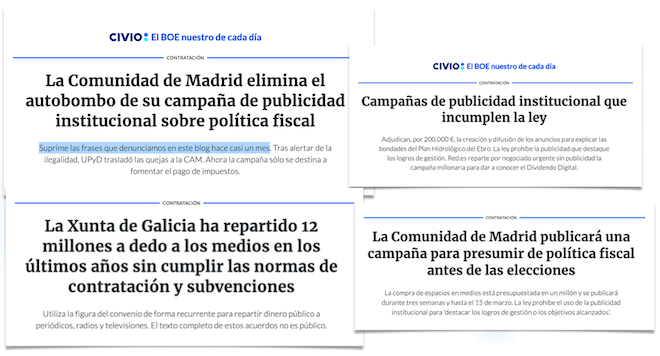
-
In-depth investigation
In 2016 we presented Who’s paid for the work?, the first major x-ray of public works contracts in Spain. Over 8000 tenders for public works - amounting to some €39m - analysed to find out which companies won them, how, and what factors might entail the risk of corruption. We were able to ascertain that information essential to monitoring abuses was held back from the public.
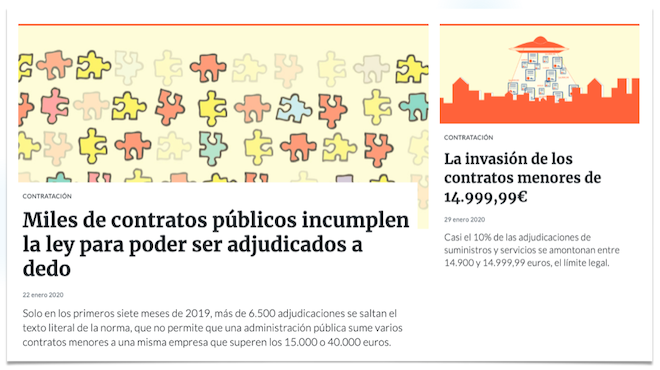
This would prove to be the spark that triggered other later investigations. From one on minor contracts and the infamous contract splitting or dividing of contracts in order to award them to hand-picked contractors, to the most recent one into the use of emergency contracts throughout the pandemic. We bet it never occurred to you that, under the guise of the health crisis, items such as camels for the Kings’ Day Parade and laser guns were procured. Us neither, until we were able to prove it.
-
Public service
In the previous months, we released dozens of databases for collective use. Like this one on tenders suspected of having been split up. And believe us, they get used. We also shared data and analysis methods with anti-corruption agencies, given that their resources are never enough to tackle the enormous challenge they face. Over months we brought together experts, public officials, civil society organisations and citizens to learn about how to improve public procurement in Spain. Everything we learned, which was a lot, has been made public.
-
Influence (i.e., lobbying)
However, it’s pointless denouncing malpractice if we don’t help to prevent it in the first place. And 2017 was a key moment: Spain was supposed to modify its public procurement procedures in line with European regulations. So we gathered everything we’d learned, presented it in the form of concrete recommendations and amendments, and took it to Parliament. Our aim: to have the transparency and corruption prevention obligations inserted into the new text.
Between 2016 and 2017 we held five meetings and one video-conference with the main parties represented in parliament. And, since to demand transparency we have to lead by way of example, the dates of these meetings, names of attendees and all documents exchanged were made public via our own meetings register.
-
Impact
The effort was rewarded: several of our proposals were first considered as amendments for debate, before being written into law.
The new regulation included articles handwritten by Civio, lifted directly from the amendments we had put to the parties months earlier. Most importantly: that the whole procurement process - from pre-studies to amendments, execution and more - needs to be more trans parent. An anti-corruption watchdog - the current Independent Office for Procurement Regulation and Supervision (OIRESCON in Spanish) - was also set up, although lacking the full independence and funding we asked for.
-
What about now?
Today we continue to work on new ways to investigate and monitor public sector procurement fraud. We are committed to ensuring the law is systematically and fully complied with, because we are aware of many authorities who only publish part of the information they are required to. We also focus on calling for more independence and funding for the body set up to ensure compliance with the law and detect irregularities. We’ve laid the foundations, but we have to be persistent and not budge even one step backwards.
-
We help government subsidies reach the people who need them
Public subsidies don’t work if they don’t reach the people who need them most. The electricity discount rate makes a damning example. Complex regulations and an application process that isn’t dealt with by the authorities but rather the electricity companies themselves, produce a feeling of helplessness in 100s of 1000s of vulnerable homes.
-
Daily monitoring
It should be a social imperative that vulnerable groups receive all the necessary information about any social welfare they are entitled to and that this also be easy to understand. As this is sadly not the case, we pour over the BOE on a daily basis to report back on each new subsidy - adhering to the small print and anything actually entering into force, not promises - and explain the criteria to get them in layman’s terms. For example, the bono social or discount rate. We denounced the fact that almost two million homes were set to lose their right to the benefit unless they adhered to the new procedures. The government ended up extending the deadline.
-
Public service
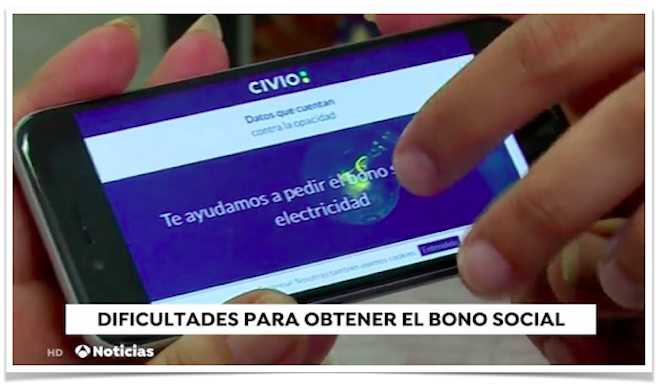
The problem came down to a lack of information and obstacles in the application process. To fix it, we created an online application that helps you to check whether a given person is entitled to the discount rate and then provides them with the necessary forms. This we did in collaboration with the CNMC and made it available to town halls, consumer organisations, social entities, etc, quickly reaching 1000s of people.
-
Strategic litigation
BOSCO is a software developed by the government and put into the hands of electricity companies to determine who has the right to the discount rate and who no. In 2018, we identified a fault in its design which meant that people who were entitled to the discount rate were being denied it. The government has assured us it has already solved the problem. However, in order to check whether this is true or if there are still faults, we decided to take their refusal to let us scrutinise BOSCO’s source code to court.
Pending judgement, we continue to demand transparency from this and other computer programmes designed by public authorities to regulate citizens’ rights. All information regarding this court case has been made public and can be found here.
-
Influence (i.e., lobbying)
Whenever we’re given the chance, we lobby for improvements to the processing of key subsidies such as this, more clarity and ease-of-use in the application processes and transparency in how they work.
After much insistence, the government has accepted our proposals to improve the discount rate in its Energy Poverty Strategy.
-
Impact
Our app to find out who has the right to the discount rate has already registered almost half a million users. Nothing makes us feel prouder than when someone reports to us that, thanks to our help, they’ve been able to access a benefit that they needed.
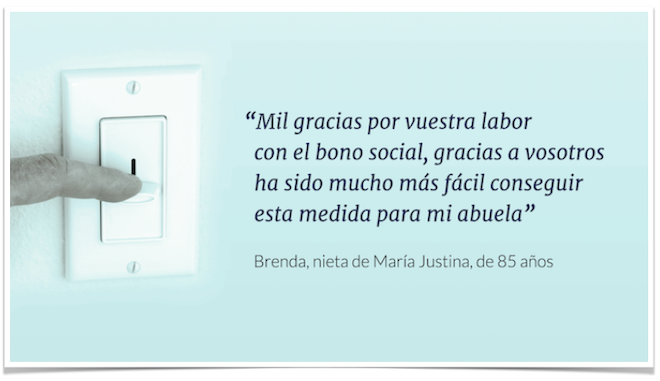
-
And now?
We continue to facilitate access to this and other government subsidies. In 2021, at the height of uncertainty during the pandemic, we created an online assistant to check which COVID-19 subsidies each household is entitled to and how to apply for them. We also answered 1000s of questions via bespoke consultancy. It takes a huge effort, but we have found it to be worthwhile. If the authorities won’t do it, Civio will.
-
We halt the widespread and opaque granting of pardons
Successive governments have used pardons en masse for years. En masse? Yes, up to 1.5 a day during certain periods, sneaking in some very controversial names. And nobody had systematically investigated this fact, which the Government has no legal requirement to reveal. Without the data, it was impossible to track.
-
Daily monitoring

We started to investigate pardons in 2013. Not because they were at the forefront of public debate like they are now, but precisely because they weren’t. Even though hundreds if not thousands were granted in some years.
By analysing the BOE, we began to report systematically on each and every new pardon being granted. Pardons for businessmen, security forces, party members… And often sneaking in names and cases that were barely justifiable.
-
In-depth investigation
Everything started to change when we launched the Pardonometer. For the first time, the public was made aware of the total number of pardons granted, the crimes most often pardoned and how each government made use of such mechanisms.
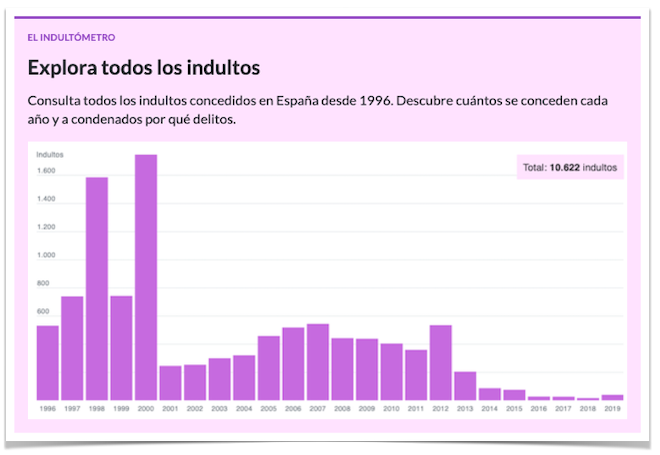
We demonstrated that environmental crimes, offences committed by civil servants against individual liberty, malfeasance by public officials and embezzlement all count for the highest percentages of pardons conceded to convict ed criminals. 3 out of 4 of these crimes are directly connected to the exercise of a public office or stealing money from the coffers of public authorities.
And when successive Justice Ministers, from Ruiz-Gallardón to Catalá, claimed that they had never pardoned anyone corrupt, it was very easy to prove they were lying. Since 1996, 227 pardons have been granted to individuals convicted of corruption-related offences by the General Council of the Judiciary. Most were for malfeasance and embezzlement.
-
Influence (i.e., lobbying)
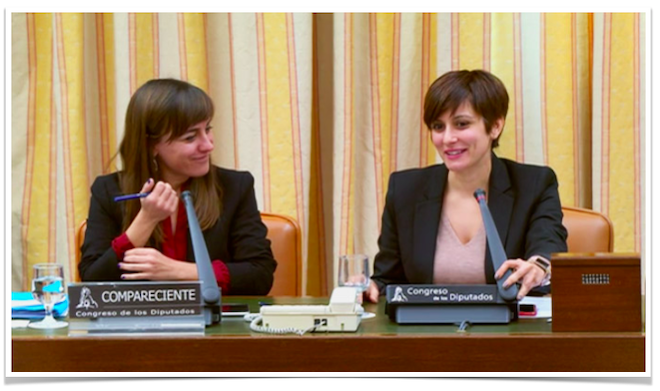
You can be sure that the people who drafted the provisional law on pardons in 1870 never imagined it would remain barely changed to this day.
In 2019, we asked Congress to put an end to the discretion shrouding this mechanism and for transparency and accountability to be applied in all cases, no matter what the crime.
-
Impact
[…] Nor can we conceal decisions from the world at large […] Not because of the two or three high-profile cases, but because now we have the Pardonometer, which didn’t exist before […] There are many areas of government administration that were previously scarcely monitored, and always discreetly, but now there is greater transparency and more media focus disclosed by them.
Ever since data such as this has been made available to society, the number of pardons awarded has fallen significantly. And it’s not only us that says so: Juan Bravo Rivera, Under-Secretary for Justice between 2012 and 2014, has publicly recognised the impact of the Pardonometer.
As a result of this project,it isno longer possible to grant pardons behind the public’s back.
-
We reveal and prevent abuse of power and injustice
Much of the information we produce has led public officials and institutions to back up and correct the problems we are bringing to light. These are just a few examples.
-
Injustice by design
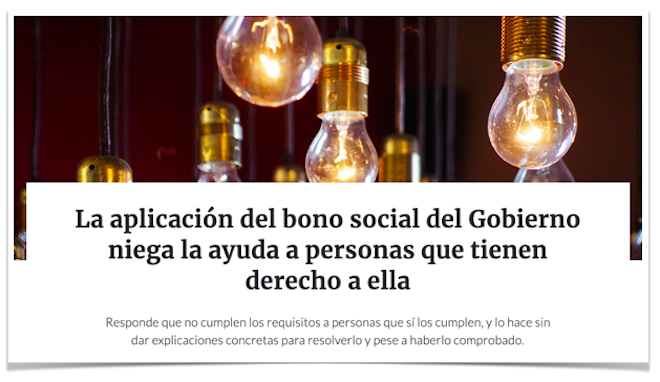
The software that electricity companies use to determine whether you are eligible for the discount rate for vulnerable households had a design fault. After being revealed by Civio, the Ministry for Ecological Transition was held accountable and had to fix this injustice.
-
Discriminatory exclusions
The Ministry of the Interior was preventing anyone affected by endometriosis and various other illnesses from joining the Police Force, without assessing whether the case was debilitating or not. Since we disclosed these widespread exclusions, which experts consider to be outdated and discriminatory, both Congress and the Police are taking steps to exclude only those cases which are disabling. In the case of Congress, they relied directly on our data.
-
Measures introduced by the Environmental Prosecutor’s Office
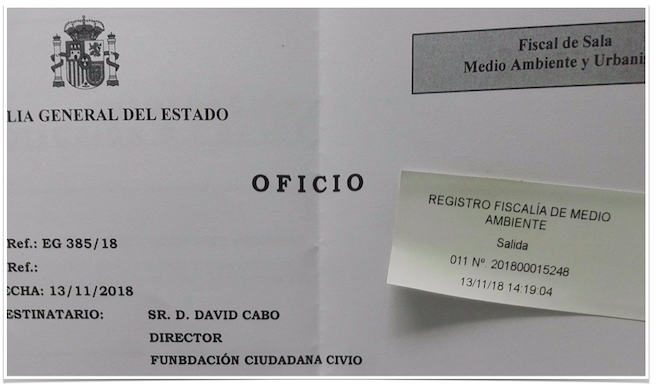
In 2018 we reported that in Spain there were over 200 municipalities that had suffered forest fires every single year between 2001 and 2015. Of the six where most hectares were burned relative to their size, 5 were inland in the region of Cantabria. Based on this information, the environmental Prosecutor’s Office began ex-officio audits to find out whether these localities had fire prevention plans and if these were enforced.
-
Deindexed senators
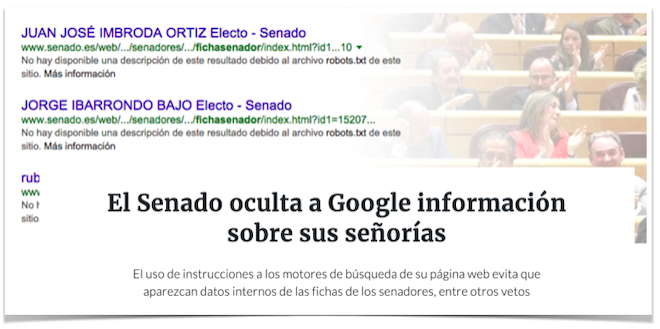
The Senate had long been hindering the indexing of key information about senators on internet search engines. The intent was clear: to hinder searches for key data such as their links to private companies or their tax declarations. Civio brought this to light and the Upper House had to put an end to this deliberately opaque practice.
-
Gallardón and the LOPD (Data Protection Act)
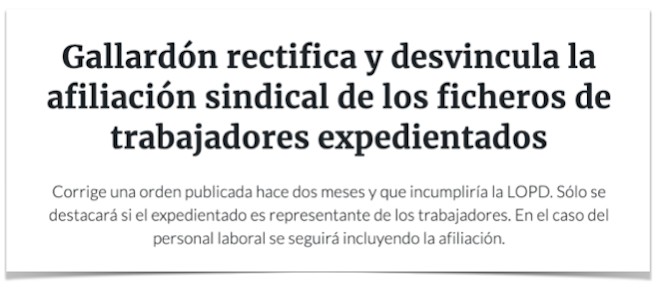
The Ministry of Justice, headed by Ruiz-Gallardón, included union membership in its files on dismissed officials, clearly violating the Data Protection Law. It was forced to backpedal after Civio brought it to light.
-
Self-aggrandisement with public money
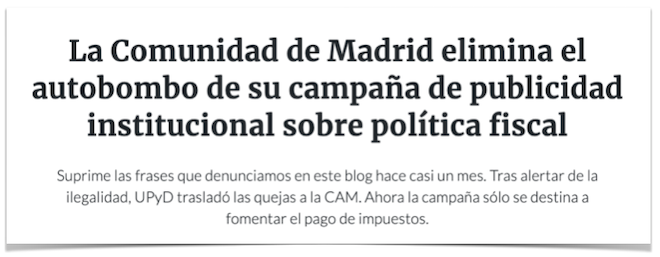
The Community of Madrid opened a tender for an institutional advertising campaign to boast of its tax policies before an election. It was Civio who first reported that this was illegal and the matter made it to the Assembly of Madrid. Ultimately, the regional government had to abolish its self-aggrandisement and comply with the law, thus preventing misuse of public funds.
-
We change laws to achieve true and effective transparency
We aim to influence policies and regulations related to our field of action. Reforms to the Public Procurement Act, the application of the Transparency Act and the regulation of lobby groups are just a few examples where we have been able to make hugely significant improvements.
-
State Transparency Act
By lobbying and gathering thousands of signatures, in 2013 we helped to prevent the Royal House, parties, trade unions and employers from being left out of the Transparency Act, as stipulated in a preliminary draft. Today we continue to demand essential improvements to its wording.
-
Public Procurement Act
In 2017, Congress reformed the law and the majority of Civio’s recommendations were either directly or indirectly included. Some, exactly as we drafted them. Two are of note: the whole process - from preliminary studies through amendment to the performance of a contract - must be more transparent; and for the first time, a supervisory body for public procurement has been set up. Our current priority: that the law be enforced.
-
Catalonia Transparency Act
Influencing the parliamentary procedure, we were decisive in ensuring this regulation included publication of how institutional advertising was shared across media titles.
-
Community of Madrid Transparency Act
We influenced the process and contributed to information being made public such as senior officials’ work and meetings schedules, trips, protocol expenses and allowances, ad hoc staff, media receiving institutional advertising and budget implementation.
-
Energy Poverty Strategy
We insisted it include the need to simplify the discount rate application process for electricity and provide clear information to citizens, among other things.
-
Lobby group registration
Civio has played an important role in the implementation of lobby group registries at the Generalitat de Catalunya , the Madrid City Hall and the Regional Government of Castilla-La Mancha. Today we’re striving to achieve the same for the General State Administration and Parliament.
-
Senior officials’ work and meetings schedules
Our recommendations have been included in the interpretations of the Transparency Council and in proposals to reform the regulations of the Congress of Deputies.
-
We win court cases to improve our ‘right to know’
One thing that makes us different is that we’re even willing to defend the right to access information in court, if need be. We do so even though it requires years of litigation and high court costs, because every victory sets a legal precedent making it more difficult to deny information in future. These are therefore victories that benefit us all.
-
Right to access information preceding the Transparency Act
An important Supreme Court ruling in favour of Civio confirmed that public administrations are compelled to provide citizens information created before the entry into force of the Transparency Act. An entirely distorted interpretation by the National High Court had tried to impede access to information preceding 2014.
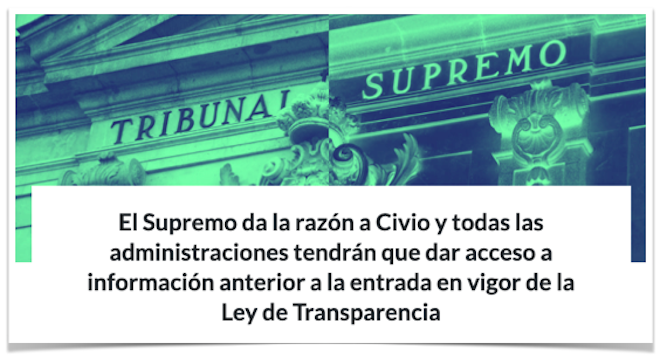
All of the information regarding the case can be found here.
-
The right to know who ad hoc advisors and staff are
In a ruling from the Supreme Court in Civio’s favour, public interests come before individual data protection interests where the aim is to find out the name and role of every single person working in the public sector.
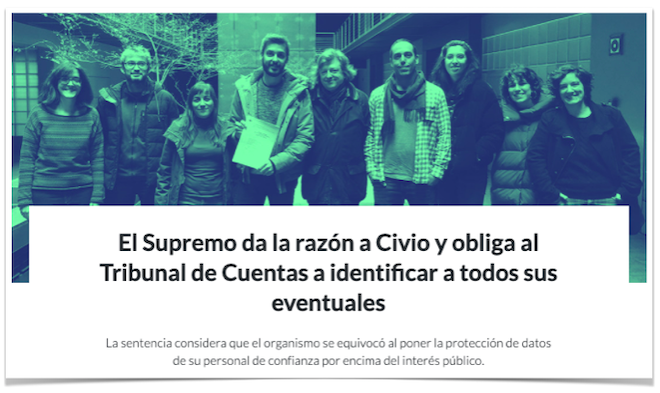
-
The right to know about requests for pardons from confraternities
Since 2019, we have been in conflict with the Ministry of Justice, which refuses to provide information on the requests for pardons that confraternities request on the occasion of Easter Week. A ruling by the National High Court in Civio’s favour rejects an appeal made by the Justice Ministry to not provide this information. Such information was made public under previous governments. We have already secured two favourable rulings, and we won’t stop there.
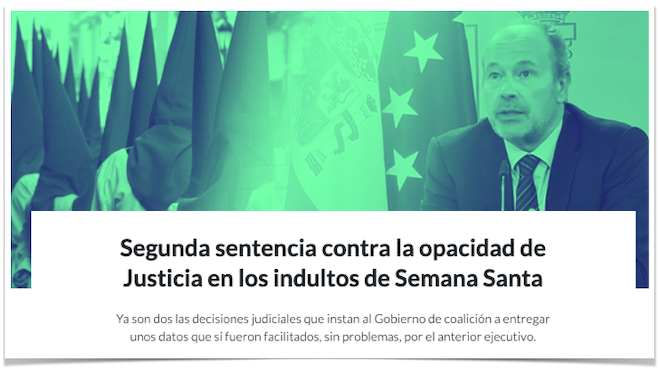
-
The right to know how Public Authority computer systems work
Here at Civio, we understand that the ‘right to know’ also covers any IT programmes developed by the authorities and which make decisions on a daily basis that affect the life of citizens, their rights and their duties. Hence, we have been forced to appeal the Transparency Council’s refusal to make public the code of a programme that decides who is eligible for the electricity discount rate. The ruling is still pending.
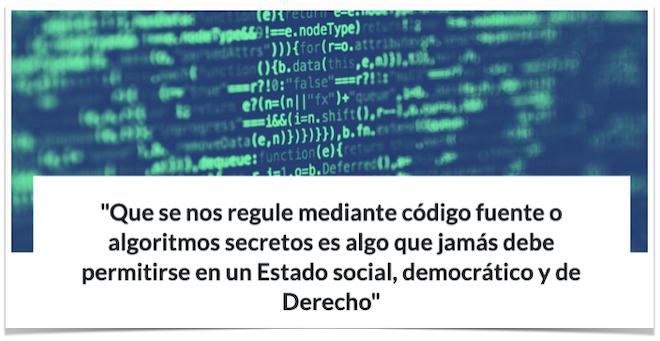
-
We remove barriers between authorities and people
We love coming up with projects and technologies at the service of the people. Initiatives such as ‘Where do my taxes go?’, ‘Your right to know’ and our online assistants to access social welfare are pioneering tools for civic use in Spain. And more importantly, they get used. A lot.
-
Requesting information has never been (nor will be) so easy
Together with Access Info Europe, in 2012 we created Tu derecho a saber, ‘Your right to know’, a platform that helped to request information from any public authority, even before the Transparency Act was implemented. Almost 2000 requests were channeled through it in the 3.5 years it was in operation.
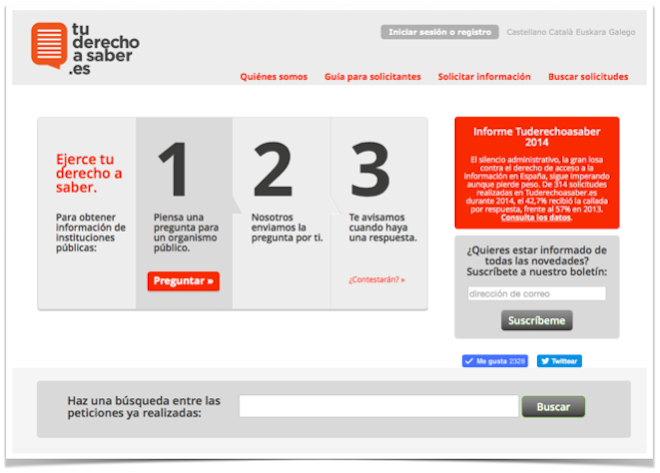
-
Budgets, just one click away
Since 2011 we have backed technology and data visualisation as a means of facilitating understanding of budgetary data. Where do my taxes go? is a Civio platform that displays budgets in a visual and interactive way. And it does this so well that it is used by over 20 public authorities, from regional governments such as Aragon and Castilla - La Mancha to city halls such as Madrid and Barcelona. Thanks to this, over 17 million citizens can easily check which policies their taxes are spent on.
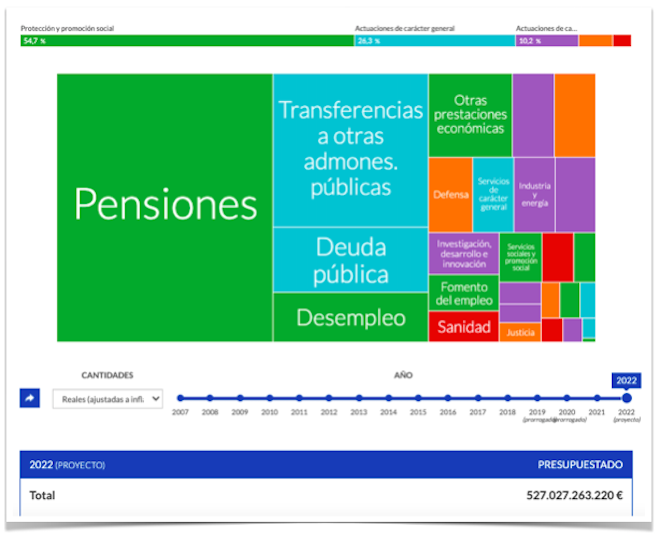
-
Online assistant for Covid subsidies
The online assistant for coronavirus subsidies has been used over 65,000 times. And our guide to coronavirus-related subsidies has been consulted on more than 10,000 occasions.
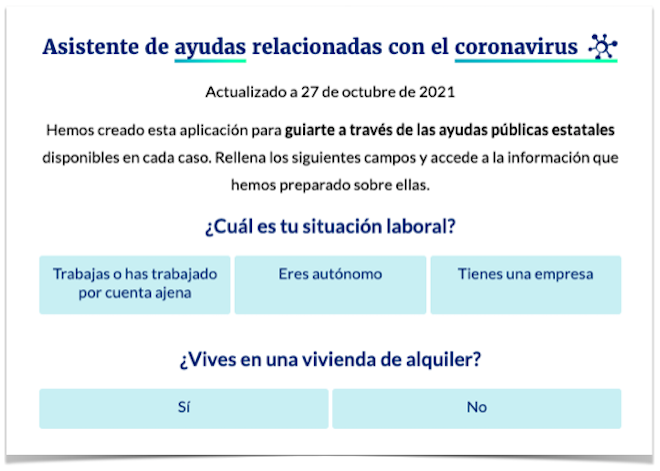
-
Are you entitled to the discount rate?
Our app to check who has the right to the electricity discount rate has been used over half a million times, with 20,000 application forms downloaded.
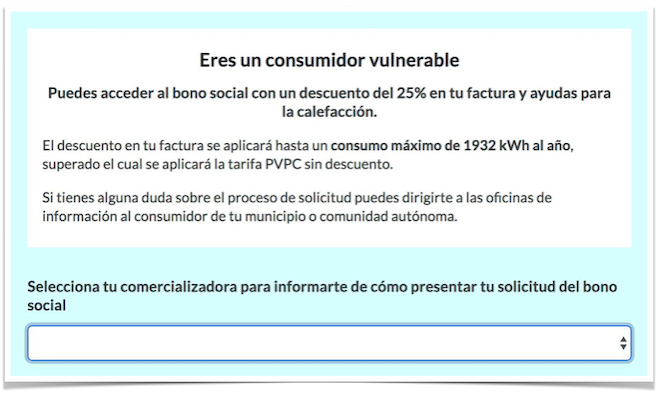
-
You ask, Civio answers
During the pandemic, we opened a personalised consultancy hub to address questions from our readers on crucial topics such as their rights, restrictions and compliance with official restrictions. We responded to 2,900 enquiries. You can see some of them here. Many thanks for your trust.
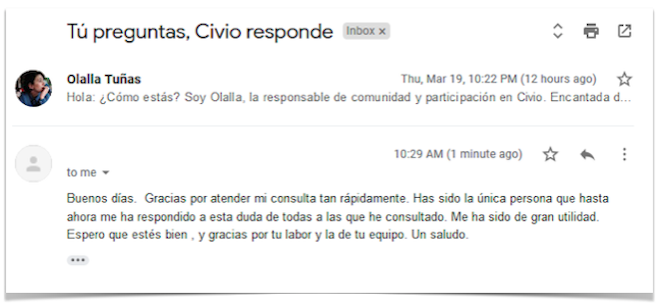
-
We release unpublished information and data for public consumption
↑ Back to indexIf we’re known for one thing, it’s disclosing and publishing previously unreleased information. Specifically, essential data to monitor the proper - or improper - functioning of the public sector and our institutions. Here are some examples:
-
Emergency pandemic procurement
We were the first media outlet to use data to shed light on how (less transparent) emergency procedures had been used and abused throughout 2020, sneaking in concessions for public television, swimming pools, the purchase of tasers and even camels for the Three Kings Parade.
These data, which have been made public and downloadable, comprise Spain’s most comprehensive database on emergency contracts awarded by all public authorities.
-
Contract splitting
Thousands of public contracts breached the law between 2018 and mid-2019, allowing them to be awarded without due competition. We demonstrated as much with the first in-depth investigation conducted in Spain into minor contracts at all public authorities. You can download the data here.
-
Payments to doctors and patients associations
We are the first media outlet to systematically analyse all of the data from the so-called ‘transfers of value’ from pharmaceutical companies to healthcare professionals and patients’ associations. We have demonstrated that 8 out of every 10 euros spent by pharmaceuticals on doctors are opaque, and we continue to unravel this now. You can download the data here.
-
Sanitary/hygiene inspections in Madrid
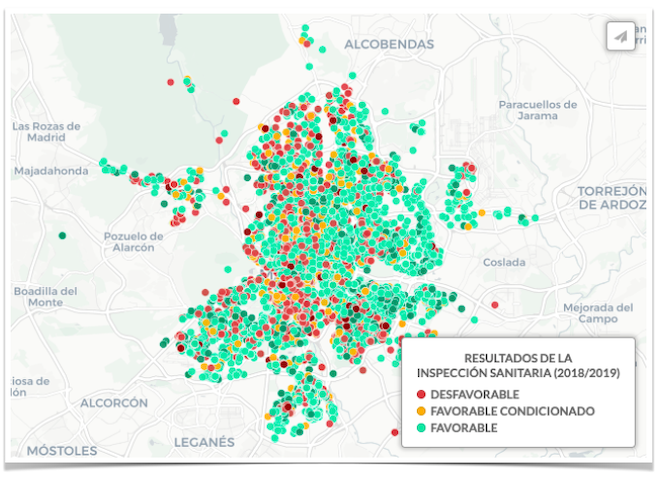
For the first time, in 2019 we shed light on the results of audits at Madrid City Hall: we analysed, investigated and published tens of thousands of evaluations in an interactive map. Download the data here.
-
Associates on official flights
We have revealed details of some of the entourages that accompany senior officials on official flights. But only after three rulings in our favour, five years at court and threats of sanction to the Ministry of Defence if we weren’t given the data.
-
Ad-hoc government advisors
We’ve been publishing their names and posts since 2015. We do so despite opposition from them because the law protects us. They work for us and we continue to push for this information to always be made public.
-
Forest fires
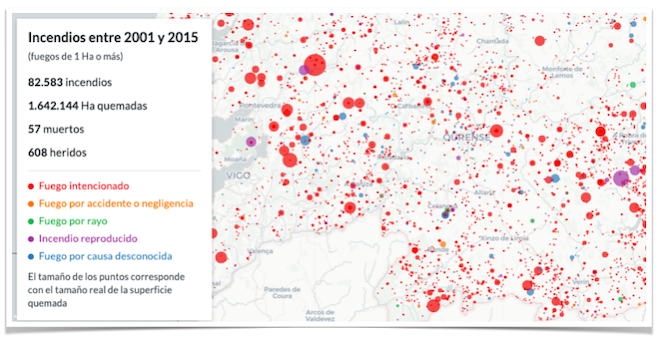
Since 2013 we’ve been interactively publishing the most comprehensive database on forest fires in Spain. Although the data reaches us late, Spain in flames is still the go-to source for information on this environmental scourge.
-
More, at Civio Data
And that’s just a small part of it. All Civio datasets - the raw material of our research – can be downloaded for free at Datos.Civio.es.
Journalism and action to monitor the public sphere
Transparent governments and informed citizens. That’s what we want and we can’t achieve it without your help.
Depending on where you pay taxes you can deduct up to 80% of your donation in your next tax return.
-
-
-
-
-
-
-
-